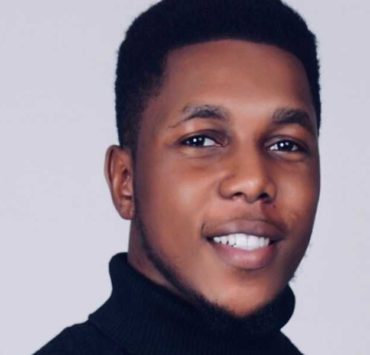I Had No Childhood Dreams of Becoming a Lawyer – Ayodele Ashiata Kadiri, 2016 Best Graduating Student

Ayodele Ashiata Kadiri graduated with a First Class, and was the best graduating student of the 2015/2016 academic session of the Nigerian Law School. She won several prizes at the Call to Bar ceremony held 30th November, 2016. Among other rewards, Miss Kadiri will travel to the United Kingdom for a six-week internship at Stephenson Harwood LLP.
Unassuming but considered a genius by many, Miss Kadiri graduated from the University of Lagos (UNILAG) where she was a founding member of the LSS Unilag Blog Committee, an executive member of the Gani Fawehinmi Chambers, Editor-in-Chief of the Lex Observer and the first representative of the Tax Club at the Tax Quiz of the Annual Tax Conference.
The Nigerian Law School is one of the most functional subsystems in Nigeria – Kadiri Ayodele Ashiata
In her interview with Lawyard, the new wig spoke about her journey to emerging the best graduating student at the Nigerian Law School in 2016.
Tobi Adebowale: What was your motivation to study Law?
Ayodele Ashiata Kadiri: Honestly, I had no childhood dreams of becoming a lawyer. When I was a secondary school student at Queen’s College, I was considered smart and one of the best students in Mathematics, so ending up in the Science Class was a given. However I felt that that students in the Art class were not stupid too. So I went to the Art class, got into the University for law, and was enthralled by the versatility of the course.
TA: How would you describe your law school experience
AAK: It was awesome!!! At first, it didn’t seem that way. I wasn’t looking forward to it. I couldn’t find my rhythm. I was just floating. But by the second term of the session, I fell deeply in love with God and this reflected in my attitude towards my studies and my relationship with others. I threw myself into the work at law school and learnt to enjoy the labour of my mind. I learnt to interact with and appreciate the amazing, talented, selfless, and driven young people around me, and I learnt to love myself and was able to capitalise on my strengths to deal with my flaws, academically. There was a lot of joy and laughter and bonding. It was like home away from home. 2016 was really amazing for me, and I am so grateful to God for that.
TA: What was your study routine at the Law school like?
AAK: At the beginning, I did things as they came. Fortunately, I was able to regroup by our first term break. I didn’t relax. I worked on my notes and the neglected preclass activities I had not touched during the first term. By the second term, I experimented with making my notes before class, that failed. I finally settled for reading before and after class, making my notes in the evening, studying and catching up with my notes during the weekends. I tried to make good use of the externship break. I was already burning the midnight oil by then to study, draft, attempt past questions and make sure my notes were completed. I paid attention in class, practiced my drafts thoroughly, solved past questions simulating exam conditions including time and quiet. I made sure I enjoyed the whole learning process. And I really participated in my study groups – CLASFON’s academic unit and the other one with my friends. In summary, I spread my work so I didn’t have to put myself under unnecessary pressure at the end of the term.
TA: What do you hope to get from the internship at the Stephenson Harwood LLP in the UK?
AAK: I am looking forward to learning, meeting new people, forging meaningful relationships, and team playing. I always tell myself that I am hardworking and teachable, so I hope to contribute and deliver in whatever role I will be assigned as a member of the team.I hope to represent Nigeria well
TA: What are your career goals?
AAK: I am taking that one step at a time. For me now, the priority is learning and adding value to the team I will be working on as a member, and as a professional rendering services to her clients and doing that exceptionally well too. Ultimately, I just want to please God with my life and career. That’s what is important to me. I owe Him everything.
TA: Mention Three things you like best about the legal profession in Nigeria
AAK: I love its versatility. Lawyers have important roles to play in almost every sector – capital Market, Oil and Gas, Telecommunications, Entertainment and Fashion, Information Technology, Start ups, Government, Sports, the possibilities are endless.
Then there is the presumption of intelligence. It is really humbling that people will listen to you because you are a lawyer. People would always want to defer to your arguments because you are ‘learned’. It comes with a lot of responsibilities and keeps you on your toes.
Finally, and this necessarily flows from the first two: lawyers are influencers. Because people are more likely to listen when we speak, and because we can be in almost every sector, we are in a position to define values, to correct wrongs, to reorient thought patterns, to change mindsets, to inspire people and to shape the future. Making impact and adding value is our ‘default setting’.
TA: What are three significant changes you’d like to see within the legal profession?
AAK: The laws – the laws set up regulatory bodies which seem not to be working together, there is no visible interaction between these bodies. For instance, the Attorney General apparently wields a lot of influence because the laws make him a member of a large number of the regulatory bodies, and he/she would usually be an SAN which would ordinarily mean experience and expertise. The same thing goes for the NBA and the Attorney Generals of the State, and some Justices, we see them represented on several of the committees making the regulatory bodies, but then this doesn’t translate into some form of coherence in the system of regulation. So it’s either we revisit the configuration of these bodies or dissolve some or leave the NBA to settle issues arising from practice of the Legal profession and regulate only Legal Education.
The NBA seems a bit silent – it has roles to play ranging from mentoring and training young wigs to making bold statements on the practice of law.Look at the disparity between law firms, and it is remarkable that in one of the biggest countries in Africa, we don’t have a law firm that boasts comfortably of 200 lawyers, let alone having offices in other parts of Africa. We need a shift, we need to begin to ask ourselves questions. Why so many small firms? Why are we not merging? What system of practice best suits us if it isn’t partnerships?
Finally, the design of our courts. This is an example of a seeming little thing that is very important. It is very vital that we understand that some things have to be custom made. Why should the design of our court rooms be in such a way that if there is no power supply, the Judges can’t seat? There should be allowance for natural sources of light and ventilation. We all know the light supply in this country is far from perfect. And the ventilation – no fresh air at all. Everywhere is closed up. During the court attachment, I didn’t envy the Judges at all, they spent roughly five hours everyday under poor indoor air quality.
Why spend so much money closing up space, then spend extra on Air conditioners, and a lot more on fuel to power generators, when you can just solve the problem by designing buildings that take our peculiarities into cognisance? If for some reason, the generator is faulty or there is no fuel, the Judges can’t seat because everywhere would be dark. During externship – this was in June, there was no power supply for two consecutive days – imagine the bail applications and motions and minor processes that would have been delayed by those two days, and the court diary was already full, any adjournment was taking place after vacation – sometime towards the end of the year. This, in the long run, contributes to the delayed justice our judicial system is known for. I think it is just a reflection of our ‘mindless copying’ culture. It is good to take a cue from others, but it is more important to make sure that it is adapted to apply to your situation.
TA: What recommendations can you make for the Law school management
AAK: I think the law school is one of the few subsystems where things work smoothly in this country. I remember my surprise upon being handed the Lesson plan in hard copy, I didn’t have to pay for that. If it were in the University, we would have paid for it. Classes started at nine. Members of staff were courteous and responsive. If you had a complaint, it was promptly attended too – maybe not all the time, but to an extent. The point I am trying to make is the Council of Legal Education is doing great but they can be better.
My major recommendation will be with regards to the externship/attachment. The list of firms and chambers as well as their addresses need to be constantly updated – some firms have ceased to exist, changed addresses, and states like Lagos regularly adjust their judicial divisions for administrative convenience. Again, there needs to be constant communication, some firms say they don’t have space, and the court rooms are really small, some people have to be reposted and these things take time.
Editor’s note: An older version of this interview appeared on a previous Lawyard domain, www.lawyard.ng with the title, ‘I Had No Childhood Dreams of Becoming a Lawyer – Kadiri Ayodele, 2016 Best Graduating Student’. A few modifications have been made to ensure conformity with Lawyard‘s current style guide.
Lawyard is a legal media and services platform that provides enlightenment and access to legal services to members of the public (individuals and businesses) while also availing lawyers of needed information on new trends and resources in various areas of legal practice.













